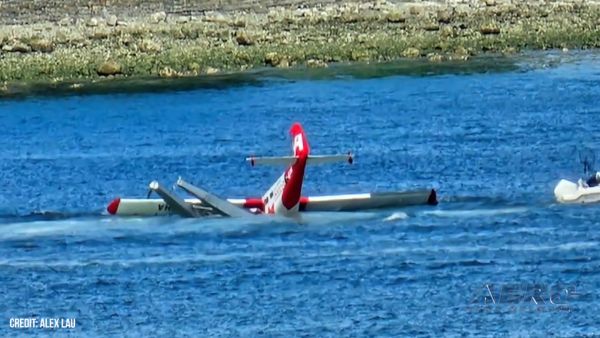Reauthorization Should Bolster Successful Programs, Close
Gaps
In a letter to the U.S. House Subcommittee on Transportation
Security, Capt. Lee Moak, president of the Air Line Pilots
Association, Int’l (ALPA), reiterated pilots’ call for
a threat-based approach to security screening that focuses on
intent rather than on objects, and for a TSA reauthorization bill
that enhances successful security programs while working to close
existing gaps.

Lee Moak
“We are gratified by the Transportation Security
Administration’s positive response to ALPA’s position
that a philosophical shift is needed in this country’s
approach to aviation security,” said Capt. Moak.
“Airline pilots are already thoroughly screened as a
condition of their employment. We are particularly pleased with the
administration’s support of alternative screening for pilots
because it uses limited resources more effectively and moves away
from a ‘one-size-fits-all’ approach to
security.”
In the letter, which was sent in preparation for the
Subcommittee’s hearing entitled “Industry Perspectives:
Authorizing the Transportation Security Administration for FY 2012
and 2013,” Capt. Moak emphasized ALPA’s call for a
screening system that allows passengers with known backgrounds to
be promptly cleared through security and focuses greater resources
on those individuals whose background is unknown or in doubt. In
2010, ALPA released a white paper titled “Meeting
Today’s Aviation Security Needs: A Call to Action for a
Trust-Based Security System,” which advocated determining the
risk posed by each passenger through a combination of publicly
available information, human interaction, and behavior-pattern
recognition.

Capt. Moak also cited the successful and widely respected
Federal Flight Deck Officer (FFDO) program, which positions
federally credentialed, armed pilots trained and managed by the
Federal Air Marshal Service to serve as the last line of defense of
the cockpit. He appealed to Congress to significantly increase
funding and managerial oversight of the FFDO program to help
realize its full potential as one of the most cost-effective
security initiatives implemented since 9/11.
ALPA also underscored to the Subcommittee the need to improve
threatened airspace management through the creation of a clearly
defined, prioritized plan to control the national airspace in the
event of a major terrorist attack. Such a plan would ensure the
security of the air transportation system but avoid a total or
substantial closure of the airspace.
Finally, ALPA’s president pointed out in the letter the
importance of pursuing known solutions to closing existing gaps in
the security of all-cargo flight operations. All-cargo flights
remain exempt from many security practices that are mandated for
passenger airlines, such as requirements for a hardened flight deck
door and fingerprint-based criminal history record checks for
persons with unescorted access to aircraft and cargo. Capt. Moak
asked Congress to address these deficiencies to ensure the safety
and security of the crew and other individuals both aboard these
aircraft and on the ground below their routes.

“ALPA recognizes the significant progress made under the
TSA’s leadership toward truly realizing a threat-based
approach to aviation security,” concluded Capt. Moak.
“We look forward to the tremendous opportunity presented by
this reauthorization and other initiatives to make aviation
security and the passenger screening process as efficient and
effective as possible to the benefit of everyone who depends on air
travel.”
 ANN's Daily Aero-Term (06.10.24): Known Traffic
ANN's Daily Aero-Term (06.10.24): Known Traffic ANN's Daily Aero-Linx (06.10.24)
ANN's Daily Aero-Linx (06.10.24) ANN's Daily Aero-Term (06.11.24): Abeam
ANN's Daily Aero-Term (06.11.24): Abeam ANN's Daily Aero-Linx (06.11.24)
ANN's Daily Aero-Linx (06.11.24) Aero-News: Quote of the Day (06.11.24)
Aero-News: Quote of the Day (06.11.24)





